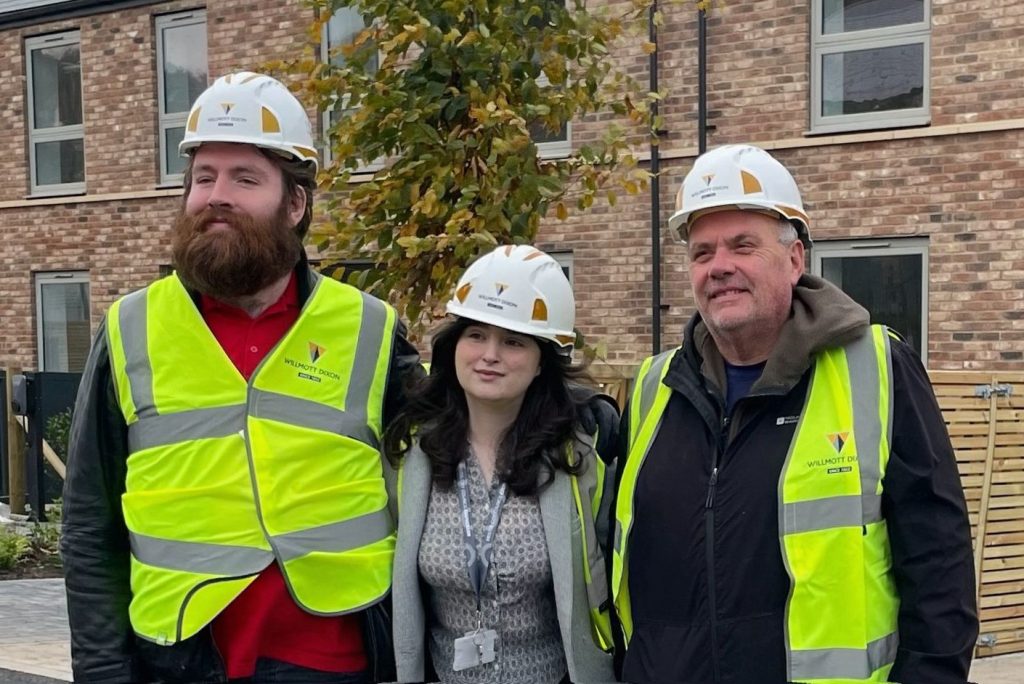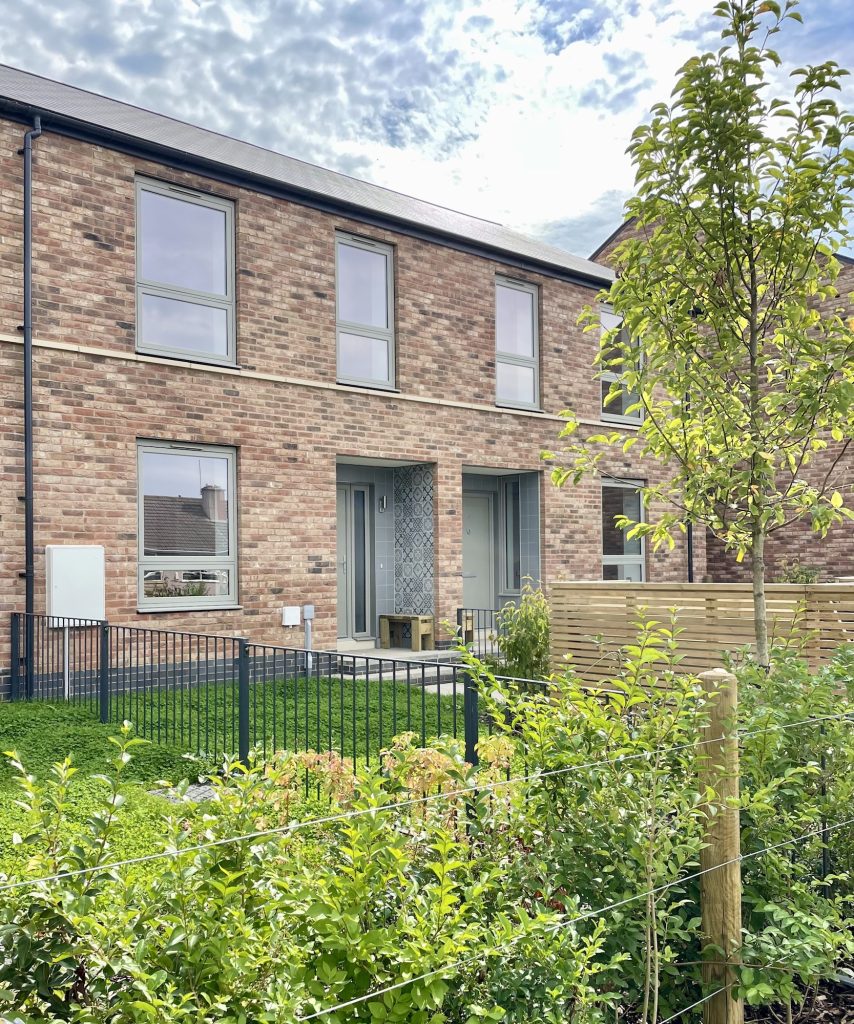Your say / Politics
‘Bristol desperately needs more council homes so why are we selling them off?’
In the Green-led administration’s recent council budget, the Greens, Liberal Democrats and Conservatives unanimously voted to sell off council housing schemes and scrap more than 2,000 new council homes that were set to be delivered in the next five years.
During the budget meeting, three of my Labour colleagues – who are council tenants themselves – gave moving testimonies about how council housing had saved their lives.
With Bristol in the grip of a housing crisis, keeping these homes in public ownership is essential. But alas, their words fell on deaf ears.
is needed now More than ever
According to the Local Government Association, the average age of a UK councillor is 60, with only 16 per cent under 45.
Some of our older councillors in Bristol would have first bought their homes in the 1970s when they cost just £5,000. By the decade’s end, that figure had risen to £20,000: still an attainable sum for a working person.
Today, £20,000 barely covers a house deposit, with the average home in Bristol costing £380,000.
It’s not just property prices that have soared; rents have too. In 2020, as a student, I paid £475 a month (bills included). When I returned after the pandemic, I paid £650 (bills not included).
Now, my partner and I live in a one-bedroom flat in Lawrence Weston, paying £1,150 a month in rent alone. For the same price in places like Thornbury or Bradley Stoke, we could afford a two-bedroom house.
I’m not here to moan about the cost of my rent though. I am merely trying to demonstrate how the rental market has drastically changed in the last five years alone.
I have been elected to represent Bristol, a city that I truly love. And the honest truth is that myself and many others are being priced out of our city.
Now, I am very fortunate. I come from a two-income household, I have no children and other than my student loan I have no debts. I am not fleeing domestic abuse nor am I unable to work.
However, this is not the case for many residents in Bristol. In March 2024, we had more than 1,500 households living in temporary accommodation and more than 800 people sleeping rough.
Not only is this morally wrong; it costs the taxpayer more than £13m annually. If the council built the homes Bristol needs, we would save huge sums of money that could be invested into other vital services.

Avonmouth & Lawrence Weston councillors Thomas Blenkinsop, Zoe Peat and Don Alexander – photo: Labour Party
Private landlords know that houses in multiple occupation (HMOs) are more profitable than renting to families.
A three-bedroom house with a dining room could be rented to a family for £1,600 per month or it could be converted into a four-bedroom HMO and rented out to individual tenants for £2,200 a month.
With demand far outstripping supply, landlords hold all the power to dictate the cost of rent.
Labour’s Renters’ Rights Bill, set to be enacted this summer, will bring a historic victory for renters. Among the calls in Bristol’s Living Rent Commission report, it will include:
- the abolition of fixed-term tenancies
- the banning of discrimination against those with children or in receipt of benefits
- ending the practice of rental bidding by prohibiting landlords and agents from asking for or accepting offers above the advertised rent
- and the removal of Section 21 “no-fault” evictions; a leading cause of homelessness.
With Section 21 evictions gone, landlords will be left with two eviction routes.
Firstly, Section 8 evictions, where they must prove to a judge that tenants have breached their contract (e.g. rent arrears, antisocial behaviour etc). This is costly and uncertain for landlords.
Secondly, pricing tenants out, by hiking rents so high that tenants are forced to leave.
You may assume there are legal limits to rent increases. And technically, there are. But rent can be increased “in line with market value”.
In a city with a higher demand for housing than there are homes to rent, landlords are the ones who decide what market value is.
Unlike with other goods or services, it’s not like we tenants can just exercise our free market right to go elsewhere. We need somewhere to live.

A recently completed housing project in Lawrence Weston saw 57 new homes built across three sites – photo: Emmett Russell
The only way to curb spiralling rents is to provide a genuine alternative: council-owned homes at a social rent.
The Greens, who pushed for these housing schemes to be scrapped, and existing homes sold off, seem to believe that housing associations have infinite pots of money and will pick up the slack when it comes to providing affordable homes.
This is a dangerous fallacy.
Housing associations face similar challenges to the council, with the need to invest in existing homes to comply with current regulations, carry out retrofitting of stock to make it more energy efficient, and address damp and mould issues as Awaab’s Law comes into force.
They have also cut their housing pipelines to invest in existing homes.
This inevitably means that by taking on schemes that would have been council homes, their other projects will either be delayed or not happen at all.
Before all else, they still operate as businesses driven by a profit motive, although some may argue with a social purpose.
Few are currently taking on new developments at the moment and hardly any will take on developments with fewer than 50 homes; it’s just too expensive for them, especially as they can’t borrow money at discounted rates like the council can.
At a time when thousands of families desperately need secure, affordable housing, selling off council homes isn’t just short-sighted; it’s a betrayal of the people who need them most.
The Labour administration’s 2024/25 housing budget set out plans to deliver more than 3,000 council homes in the next five years. That number has been cut to 728 in the 2025/26 budget; a 76 per cent reduction.
During the meeting to approve the council’s budget, we moved an amendment that sought the administration’s commitment to continue building a small number of these schemes – but only once the council had the financial headroom to do so.
These amendments were signed off by the council’s finance team, meaning that they were financially viable. Work on improving tenants’ homes would be unaffected and significant reserves would have remained unspent.
There is also a strong case to be made about ensuring that future phases of Hengrove Park proceed with council homes as originally envisaged.
This would bolster the funds available to invest in older homes in the long term and put a stop to the Green and Tory backroom deals that are selling off the futures of our city’s worst off.
It just goes to show that scrapping these schemes was a political choice not a financial necessity.
We need more council homes and, yes, they must be council-owned so we can support families priced out of the private sector.
If we don’t act now, Bristol’s housing crisis will only deepen, forcing even more of us out of the city we love and call home.
This is an opinion piece by Zoe Peat, a Labour Party councillor for Avonmouth & Lawrence Weston
Main photo: Labour Party
Read next:
 Our newsletters emailed directly to you
Our newsletters emailed directly to you




















